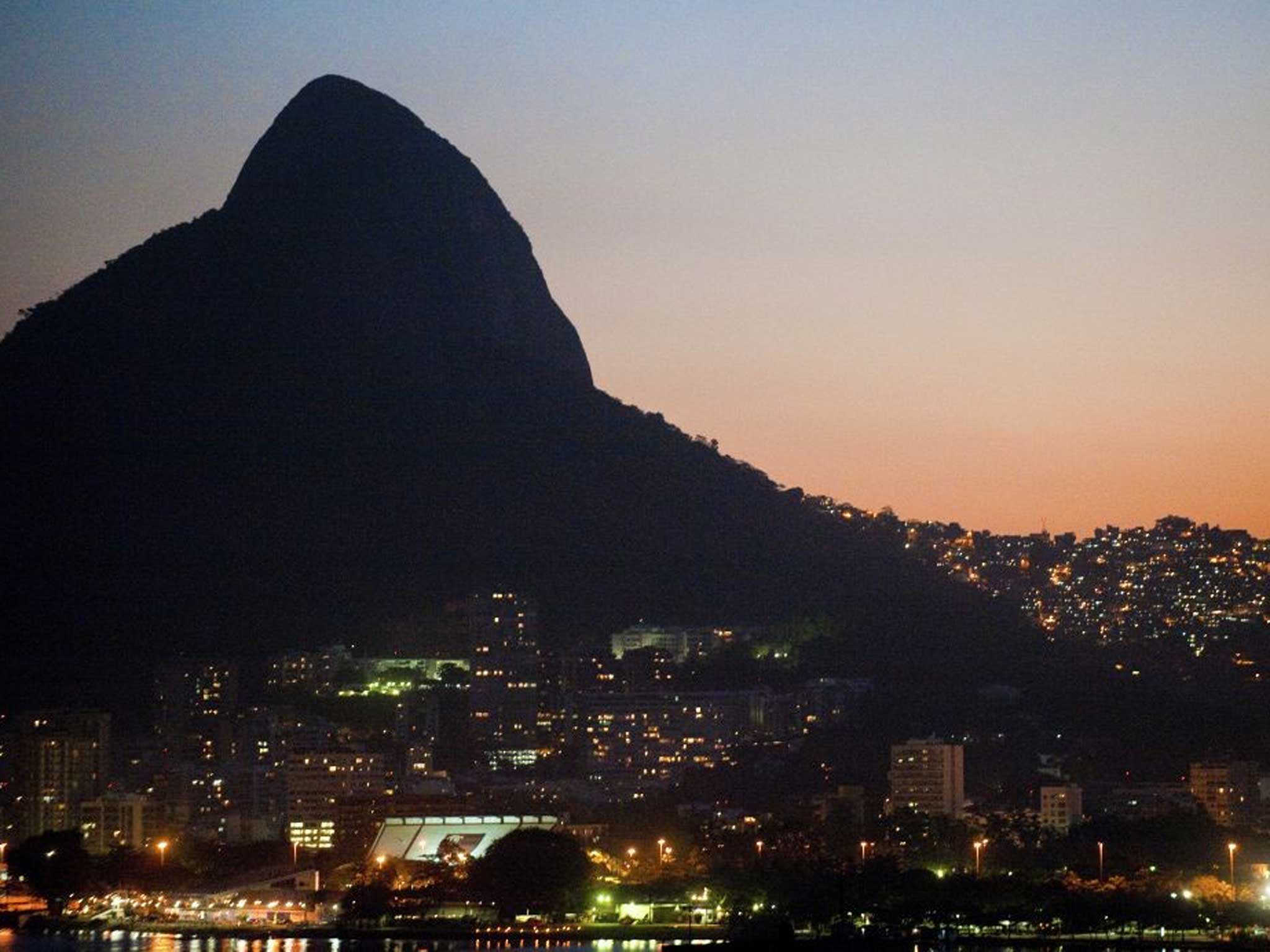'Ghetto TV' shows another side to residents of Rio's largest favela
Angered by stereotypical portrayals, a group in the city's biggest shanty town are launching their own channel

Residents of Rocinha, the largest favela in Rio de Janeiro, have been portrayed as domestic servants, thieves and uneducated nonentities for too long, they say.
Now, fed up with not seeing their real way of life represented on Brazilian television, a group of residents are pooling their talents to launch the first "ghetto TV" station. The initiative will challenge what shanty town dwellers say are "stereotypical depictions" of their lives – poorer neighbourhoods that are inaccessible, and violent no-go areas.
"We are opening up a new way of speaking, a new way of being heard and a different way of accessing television for our communities," said Joilson Pinheiro, the brains behind Evolution Television (ETV) and the president of the station. "For decades we've been portrayed as domestics, labourers, thieves and illiterate nobodies who only have their lives reported on when there is an outbreak of violence, drug-related shootings, a tragedy or a protest."
According to Mr Pinheiro, the station will depict "the humour, the drama, the difficulties we face and our aspirations". The station has partnered with Sim TV, a relatively new cable television, broadband and telephone operator in Brazil, to stream its shows through the internet into thousands of shanty homes. The Sim platform will allow ETV to brand and supply a multi-channel service with up to 70 different stations including ETV programming, the World Cup – which starts on 12 June – films, soap operas and news.
The new community channel relies on about 50 actors, producers, journalists and enthusiasts, the majority born and bred in Rocinha, to volunteer their skills between day jobs. (Mr Pinheiro normally works as a waiter.) The plan is eventually to pay staff, who have worked 12-hour days for the past two months, from revenue generated through advertising and programme sponsorship.
Tiago Sorragi, who runs a small video production company, has donated his cameras and editing equipment. Luciano Viana, who owns an internet installation business, is providing the technical skills needed to run the 24-hour channel that goes live at the end of June.
There are already a number of pilot episodes ready for air. One of them, Morra de Rir ("Die Laughing"), is a half-hour weekly comedy. Dione Prada, a producer, said: "These are stories we've seen before but they've not been told from our point of view."
Valquiria Santana, ETV's executive director, is producing a daily magazine chat show with music. "What really matters is empowering our people, allowing them to get involved, giving them a chance to take charge of their own image and to tell their own stories," she said.
ETV organisers say they were driven to find an alternative to the established satellite providers in Rio such as Sky, Claro, Net and Vivo because of what they described as a continued reluctance to install dishes and receivers in thousands of homes built on the city's mountain sides.
Despite Rio's pacification programme ending decades of rule by favela drug traffickers, with the introduction of a permanent police presence in 38 comunidades, residents complain that thousands are rejected for basic satellite services because they live in "high risk" areas.
ETV is planning to supply 35 favelas with a 30 per cent cheaper deal for television, with the help of affiliated and influential samba schools. But critics are concerned the service will be unreliable with poor quality reception from limited broadband capacity. However, ETV technicians say they are confident the installations will work.
The Rocinha shows will be promoted as a blueprint for other favelas. "Satellite companies are missing out on a potentially lucrative market but their disinterest has inspired us with a new vision," said Mr Viana."People in Rocinha are excited about the arrival of ETV. We still have a degree of unpredictable violence here but we no longer have drug gangs dictating how we operate and demanding a cut of our profits."
Subscribe to Independent Premium to bookmark this article
Want to bookmark your favourite articles and stories to read or reference later? Start your Independent Premium subscription today.

Join our commenting forum
Join thought-provoking conversations, follow other Independent readers and see their replies